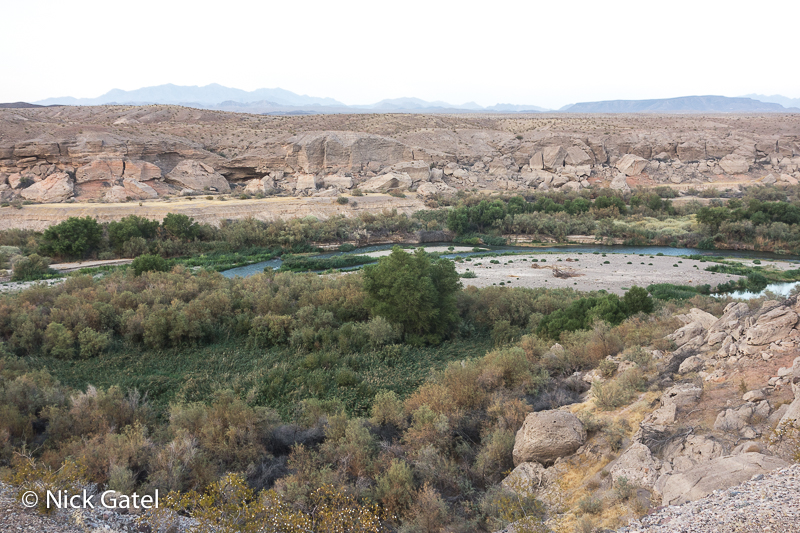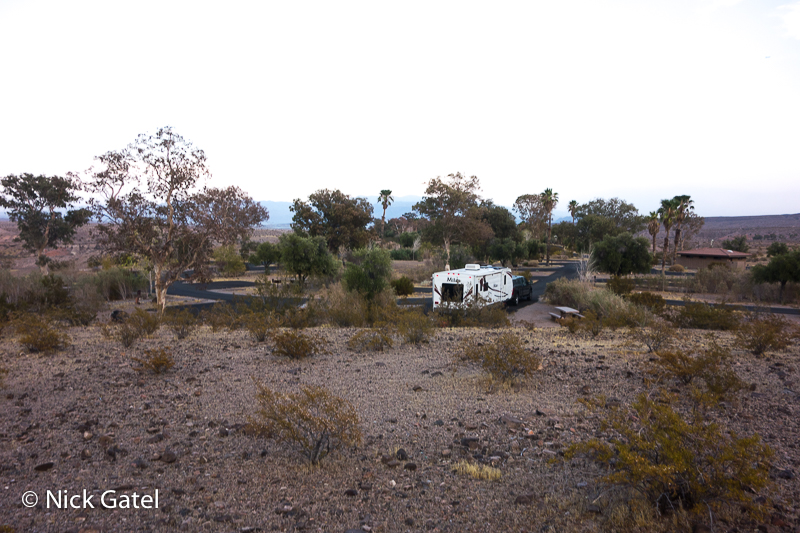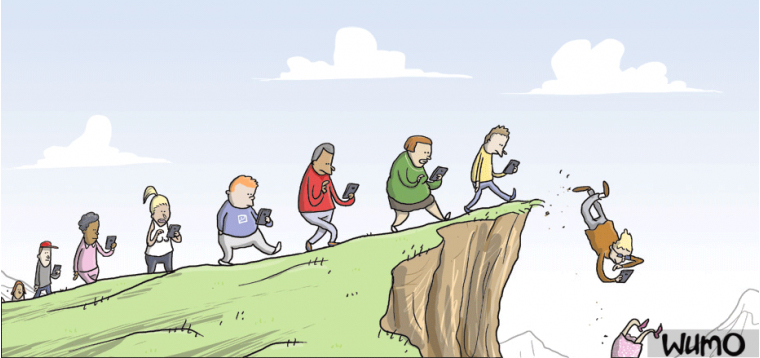What’s Up With That?
So here we are, 5+ plus months into the COVID-19 pandemic with on and off shutdowns in our lives. Along with this, we now have common words to describe our situation, words that most of us almost never used prior and are now everyday terms, such as “social distancing” or “herd immunity.”
On word that doesn’t get much attention, and should, is herd mentality. Last month herd mentality came to the forefront while I planned and then executed a camping trip for Joyce and me. This herd mentality didn’t harm us or ruin our trip, but, once again, gave me pause to think about how we act out our lives.
Planning Our Last Camping Trip
A lot of people are camping this summer. As an indicator, the RV industry is setting all time records for sales of recreational vehicles, with a surprising majority of first time buyers.
This means campgrounds have mostly been filled to capacity this summer. Not just on weekends, but 7 days a week.
Along with heavy pressure from the sheer number of people wanting to go camping, not all campgrounds are open, plus many areas where dispersed camping is allowed on government lands have been closed to the public.
If you are a regular reader of this blog, then you know how much I value solitude and how hard we work to find camping spots devoid of people (aka as crowds). For the trip finding a secluded place to camp where the weather was nice was probably a near impossibility. At the same time, we wanted to get out camping for a while, to get away from civilization, which is, in my opinion, a noble idea.
As I wrote in this post six years ago, it was time to go where most people don’t want to camp. And I knew just where to go. I had camped at this desert campground a few years ago on a bicycle tour trip. With a week-long temperature forecast of highs between 114° F to 116° F, I figured there wouldn’t be many people camping at this particular campground. In fact, I expected no one to be in the campground at all.
I Also thought that even if we encountered other campers, with 85 campsites, we should be able to enjoy our solitude. So, off we went for an 9 day trip. When we arrived, there was no one else in the campground. Zero. Nada. Perfect.
The Worst Campsite Can be the Best Campsite
To ensure peace and quiet, I picked the absolute worst campsite — one with no shade at all, which is okay, because we live in a desert anyway, and our solar panels like plenty of sunshine. I also picked a site at the edge of the campground, next to a hill that would minimize the number of open campsites around us.
The Nice Sites in the Campground
My thinking was that if others should come here to camp, they would want to camp at the opposite end of the campground from us, which was over ¼ mile from our site, and offered many sheltered and shady spots. I should have been a psychologist, not an auto mechanic!

When You’re Wrong, You’re Wrong
Late one afternoon, a couple days after our arrival, a group of tent campers set up directly across from us. It certainly wasn’t a great site. If I had been them, I would have picked a shady spot at the other end of the campground. Another benefit of those shady spots is generator use is not allowed.
Then, a couple days later, another group set up to the side of us. I could see no benefit for this group to camp in this particular site.
So now we had three groups, including Joyce and me, camping in the least desirable part of the campground. Go figure!
Putting Things Into Perspective
I want to point out that anyone can pick any campsite they wish. We harbor no animosity towards our fellow campers on this trip. They did not ruin our trip. In fact, we really didn’t notice them since none created excessive noise. I’m not upset or angry.
But One Has to Wonder . . .
So why would someone want to camp next to a complete stranger in a huge empty campground? Some possibilities might be:
- They figured we must have picked out site because we knew something they didn’t, or knew more than they did. That is, there was something special about our decision, even though they had no idea why we picked this site.
- They felt safer camped close to someone else.
- Perhaps they figured we might want to socialize with them.
- Some other reason?
Socializing With Complete Strangers
When our dog, Corky, was alive and we took him camping, almost every morning and afternoon we would take him for a walk around whatever campground we were staying at.
Sometimes people would invite us to their campsite for a drink or even dinner. We would always graciously decline the invitation. In some instances they would press the invitation, not because they thought we were lonely, but because they seemed desperate to engage with others. This is difficult for us to understand, because we really enjoy being alone as a couple — it is one of the main reasons we camp as often as we do.
On occasion people have told us they would like us to join their group, because we must be lonely, being a couple all by ourselves. Gosh, that is the point — we are a couple and want to spend our time together alone. If we want to socialize, we will do so on our own terms, when we want, with our own friends and family.
In all fairness, all these encounters have been with good intentions. People are nice. At the same time, it seems these days that many want to be connected to others 24/7. That isn’t healthy.
The same kind of things happens to me on backpacking trips, whether I am alone or with a group. Complete strangers want to hang out with my group or me. I think a lot people backpack for the solitude, not spend time with a group of complete strangers.
Herd Mentality
So all of this is a herd mentality. I’ve put together my own definitions.
Level 1: Simple Herd Mentality
There are many definitions of herd mentality. At its most simple level, as humans, we often tend to join a herd. That is, we hang out with others, often times with people of similar interests, versus going it alone. Sometimes we just don’t want to be alone and find comfort just being with other humans. This has been magnified for many people during the pandemic who have been forced to stay at home, and they just can’t cope with being alone or “stuck” with their families.
2nd Level Herd Mentality
This is the next level, when members of the herd start thinking alike. Maybe they just need to talk to others, finding that solitude is really a dark cloud over their consciousness. An example is large groups of people converging with complete strangers at a beach or campground convinced that wearing face masks in a pandemic is government intruding on their personal freedom.
Mob Mentality or Group Think (3rd Level)
This is the highest and usually the most dangerous. Dangerous for inhibiting personal growth or individualism, dangerous due to poor decision making by a group, or worst of all, group actions that can mentally or physically hurt members of the group or others outside of the group.
I wrote about the dangers of Group Think and Collaboration on the Trail several years ago.
Balancing Life
We are social animals. Living in societies with others allows us to divide labor to become more productive and create more leisure time for ourselves. It also allows us to create social systems such as police to product us from criminals, a military to protect us from foreign invaders, or courts to adjudicate disagreements between individuals or groups of individuals. These social constructs allow us to live together peacefully most of the time, and prevent the need to be in a primitive state of nature where we are constantly at war with everyone around us.
Today most are living an unbalanced life, where they must be connected with other people almost every waking hour, either in person or via phone, texting, email, or social media. We have forgotten how to be alone and how to be our own individual self. Instead of social animals that choose to be joined with others when we want to, and to be alone when we want or need to be, we are becoming social insects. We are become just like ants and bees that only exist for the benefit of the group.
It has even gotten to the point that folks can’t even make a decision on their own. On the neighborhood website, nextdoor.com, I see this all the time. Such questions as “recommend a . . .” or “what should I do about . . .”
This isn’t healthy for humans.
What is healthy is to get out and enjoy some solitude in nature, which we did do on this trip.





